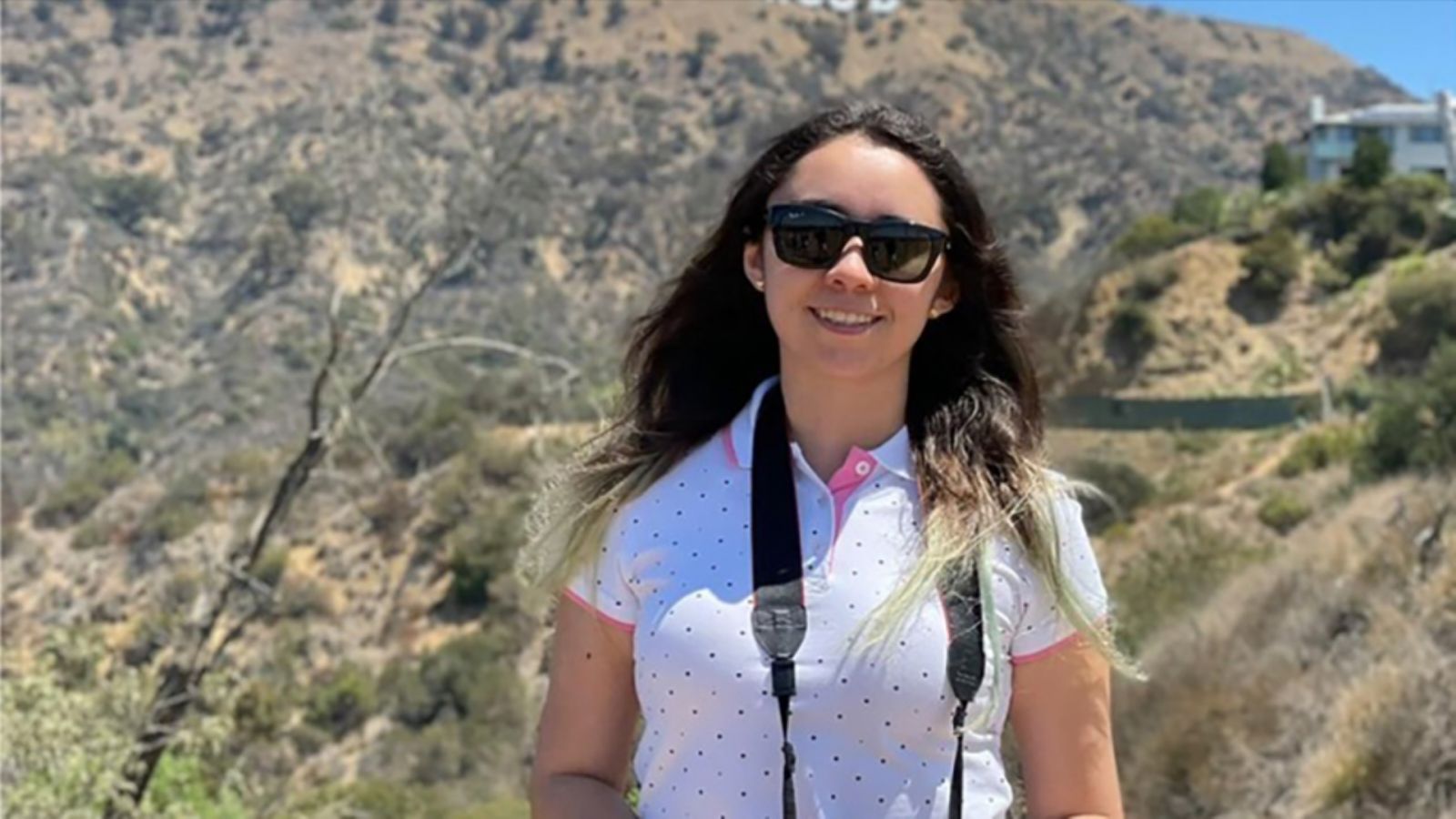
Angela Jimenez, a graduate student in Computer Graphics Technology, has received a great many accolades in recent months. She is the recipient of both the Frederick N. Andrews Fellowship and the Presidential Excellence Ph.D. Award—both of which encourage the most “outstanding” and the “best and brightest” graduate students to pursue their Ph.D. at Purdue.
Arriving at Purdue
“I really made up my mind on going for a Ph.D. last year,” Jimenez said. “That’s when I had the chance to do more research, to focus all of my studies into virtual reality, which I really love.”
Jimenez had a lot to learn when she first came to Purdue from Colombia. She met her faculty mentor, Associate Professor and VR Lab Director Christos Mousas, during a summer program in 2022. “First off, I had never heard of any polytechnic institutes before—we didn’t really have that in Colombia,” Jimenez said.
However, in spite of the cultural adjustment, Jimenez also found that there was vast potential for her own work within Purdue. “When I was here that summer, I got to meet all of these international people in the lab,” she said. “I was surprised because we have our research programs in Colombia, but I don’t think it’s as wide and international.”
Jimenez would head off to her first internship at Unity, the creator of the widely-used Unity Engine, at the end of that summer, where she was able to “just focus on building things, which I really loved.” She realized she wanted to stay on the path of creating new worlds in VR with the resources available at Purdue.
Working and developing in VR
“All the way back in high school, I had the opportunity to try on a VR headset. And I was pretty fixated on VR at that point. The big project I did as an undergraduate was designing a virtual reality escape room, which allowed me to focus on how players collaborate while making use of VR systems. .. I’ve carried all of that through into my graduate degree.”
Most of Jimenez’s research is now focused on “human-agent collaboration,” the process by which a user interacts with an “immersive agent” in a VR setting.
These agents are essentially interactive AI figures within the game world, designed to be as responsive as possible to the user’s actions. In Jimenez’s projects, these agents are used both as tools purely within the mechanics of a VR game, and also as educational facilitators that give real-time feedback in a variety of contexts.
“Just as one example, one of my projects is for the Japanese language department,” Jimenez explained. “We simulate a sushi restaurant, where people can practice ordering from the menu. They can find and associate the names of the orders, the qualities of a dish, and even see the dish as a 3D object.”
“We have this incredible advantage in VR, which is that we can create a simulation and actually drop people inside of it. So the reason why the immersive agent is so interesting is that we can extend the simulation even further. Beyond just interacting with an environment, we can see how people engage with the agent, which is really a simulated person. We put a face and a body on the agent—how do people view it? How do people choose to interact with that?”
One of the interesting design challenges in VR is simply the amount of data that a developer like Jimenez has to work with. “It’s a really small device,” she said. “You need to consider optimization and graphics. Things need to look good in order for you to have a good experience, but if you make it too high quality, you may fall into some optimization errors.”
Creating community
Jimenez has been active in areas beyond her own research; she has been teaching Spanish since she came to Purdue, and volunteers frequently with the Colombian Student Association at Purdue (CSAP).
Her efforts to “participate as much as possible” in both her academic pursuits and in campus life are part of what caught the attention of the selection committee for the Andrews Fellowship and the Presidential Excellence award.
“A lot of people highlighted that I’m trying to be both academically accomplished and vocal in giving back to the community here,” Jimenez said. “I feel like teaching Spanish has helped me build a lot of other skills beyond my research. I’m learning classroom management, communication, conflict resolution—all the parts of an educator’s experience.”
Working in the Spanish department, and mentoring other Colombian students in particular, has been a rewarding part of Jimenez’s time on campus. She has had ample opportunity to help other students overcome culture shock, as someone who did this herself not that long ago.
“We Colombians have a really big community here, and we just try to be there for each other. Overall I think it’s actually a pretty good experience because we still have this huge, warm community away from home.”
Feeling settled and finding a place at school can be hard, even for students who don’t have to leave the place they grew up in order to get an education. But Jimenez has cultivated a sense of connection among Colombian students, and in the process has carved out her own communal niche at Purdue which she can bring into her upcoming Ph.D. experience.
“The process was not super easy, of course. But now I can say that I feel a sense of belonging. I’m going beyond developing my skills, because I can also work toward building a community. I really feel like I’m a part of something here.”
Additional information
